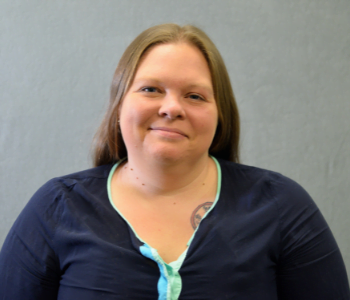- Home
- Academics
- School of Arts and Sciences
- Psychology
Psychology
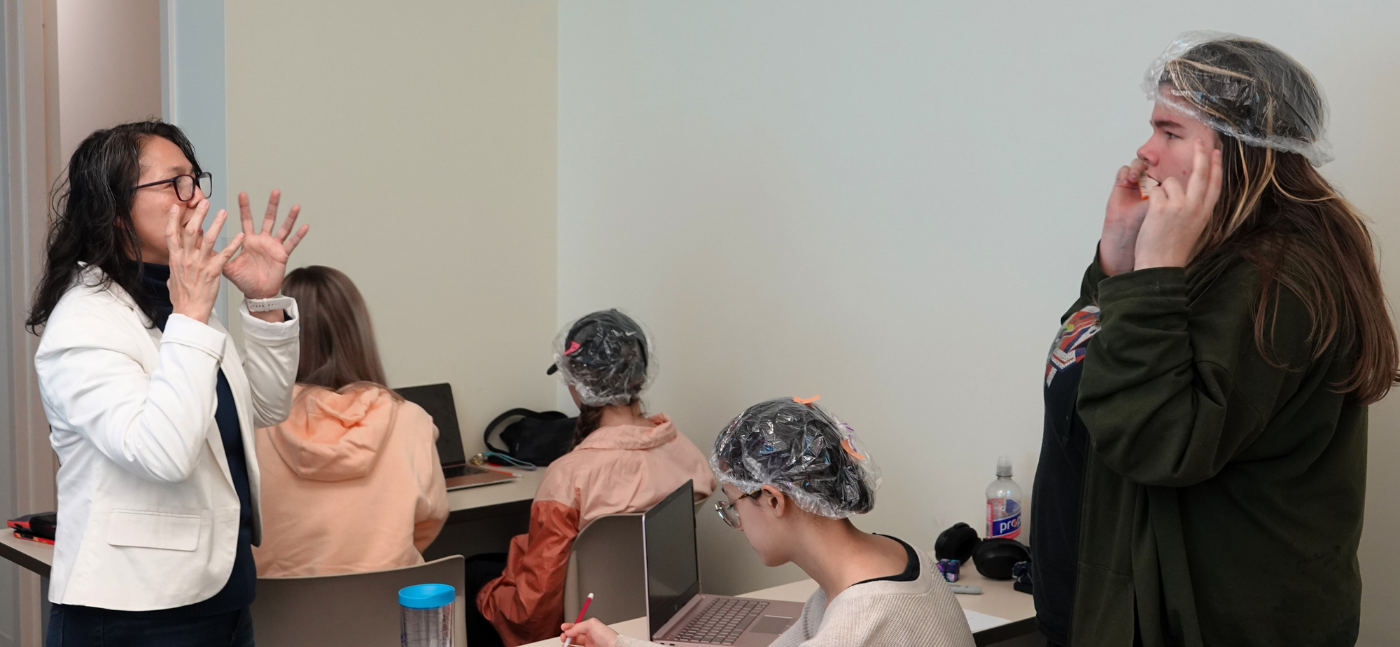
The Bachelor of Science with a Major in Psychology is designed for students who want to make a difference in the lives of others. It provides students with a strong background for graduate studies, as well as entry into leadership positions in community government agencies, nonprofit organizations, and business. It also provides workforce entry into a variety of human service areas.
A strength of the BS in Psychology program is our focus on experiential learning. Students have opportunities to engage in hands-on Service-Learning, research, and internships with local agencies and community partners. Our students also have opportunities to collaborate with program faculty and other students to design, conduct, and present research at regional and national conferences.
This major offers students a uniquely innovative choice of curricula aimed at addressing 21st Century changes in demography, privations, and technology. It offers student-centered instruction and advising by nationally and internationally recognized faculty, with a strong emphasis on research. Contemporary psychology is both a scientific and applied field of study with interdisciplinary roots that provides a strong liberal arts background and pathways to numerous careers.
This degree offers three concentrations: Psychological Science, Community and Organizational Leadership, and Human Services. The Psychological Science concentration will provide students with a rigorous program of study in the science of psychology, including the theory, research, and quantitative methods of both basic and applied psychology. Community and Organizational Leadership is an applied field based in organizational and community psychology and business. Psychology of Human Services is an emerging field at the intersection of psychology, health, and business.
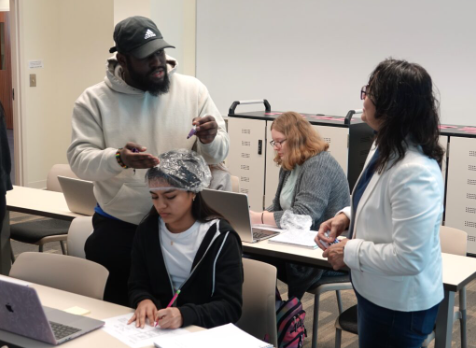
Making Connections Through Brain Mapping
Understanding the components of the brain is key in psychology while exploring the human mind and its functions. Associate Professor of Psychology Dr. Aurora Ramos Nuñez used an interesting activity to help students learn brain mapping.
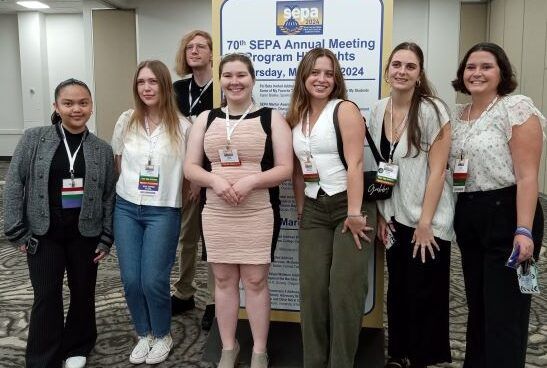
Mariners Present Research at Annual Psychological Conference
You get to have actual conversations with the people who did the research, and ask questions or make suggestions. That was one of the things my students enjoyed. People would read their poster, talk to them about their projects, and make suggestions. It has inspired some to do a follow-up study.
-Dr. Kimberly Mannahan, Professor of Psychology
Concentrations in Psychology
The Psychological Science concentration will provide students with a rigorous program of study in the science of psychology, including the theory, research, and quantitative methods of both basic and applied psychology.
Community and Organizational Leadership is an applied field based in organizational and community psychology and business.
Psychology of Human Services is an emerging field at the intersection of psychology, health, and business.

Psychology Student Publishes Article
Coastal Georgia Psychology student, Kennedy Ralph, was published in the Journal of Student Research for her paper, “Understanding the Link Between Social Skills and Phone Use.”
Ralph was supervised by Assistant Professor of Psychology, Dr. Aurora Ramos Nuñez.
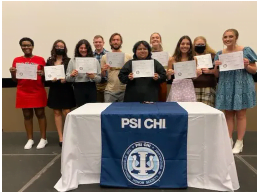
College Joins Psychology Honor Society
The College of Coastal Georgia is now a member of Psi Chi, the International Honor Society in Psychology. The College’s Psi Chi Chapter was installed on Dec. 3, and inducted its first chapter members – 19 students and five faculty.
Dr. Carla Bluhm
Carla Bluhm received her undergraduate degree in Psychology and minor in History at University of Massachusetts Amherst. She then went on to earn a Masters degree at Teachers College Columbia University and was then encouraged to stay for her Masters of Education, and Masters of Philosophy in Developmental Psychology from Columbia University. After taking a year off to teach at the University of Rhode Island, she returned to NYC to work with her mentor, Professor John Broughton, on theoretical, cultural, and historical psychology and completed her Ph.D. from Columbia University. While working on her Ph.D., she served as a teaching assistant at Columbia for Dr. Herb Terrace of the famed Nim Chimpsky study. She also worked for New Hope Guild, based in Brooklyn, as a psychotherapist for over two years with a geriatric population in a skilled nursing facility.
Dr. Bluhm was awarded Professor of the Year from the College of Coastal Georgia, and thrives in a teaching environment both online and face to face. She has taught for USG eCore for numerous years and values high level and committed teaching in an environment that supports critical and divergent thinking skill development. She teaches classes across the lifespan as well as clinical classes and a course she is developing related to psychology and the natural world. During the Spring semester of 2019, she walked over a 250-mile Camino across Portugal into Santiago, Spain to increase her knowledge and thoughts about the psychology of long walks and the natural world. You can check out her adventure here.
Dr. Bluhm is married and has one daughter who shines bright at Oberlin College.
Dr. Drew Cagle
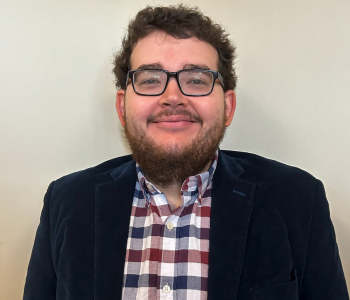
Dr. Cagle joined the faculty of the College of Arts and Sciences at the College of Coastal Georgia in Fall 2023 as Assistant Professor of Political Science. He specializes in American Political Psychology and Survey Methodology. Dr. Cagle holds a Bachelor’s degree in political science and law from the University of Tennessee, as well as an M.A. in political science from the University of Alabama. He completed his PhD at the University of Alabama in May, 2023 under the supervision of Dr. Nick Davis.
Before joining the College, Drew worked in association management for the Midwest Political Science Association from 2020-2023. Dr. Cagle’s scholarly work has been featured in Social Sciences Quarterly and at several major conferences. He is also a frequent contributor to The Brunswick News as well as an Associate Scholar of the Reg Murphy Center for Economic Policy Studies and the Coordinator of the Social Sciences Speaker Series.
Dr. Marci R. Culley
Education:
Ph.D., Community Psychology, University of Missouri-Kansas City
M.A., Community Psychology and Social Change, The Pennsylvania State University-Harrisburg
B.S., Psychology, Michigan State University
About: Dr. Culley’s program of research is focused on individual, community, organizational, and institutional responses to environmental hazards. She specializes in citizen participation in environmental decision-making, environmental justice, and the links between individual transformation and larger community and social change processes. In particular, she investigates psychosocial responses to environmental disputes, how citizen participation processes are shaped by power dynamics, and how community psychologists can inform change efforts aimed at the human-caused environmental crises related to global climate change. Dr. Culley has also written extensively about the history and content of the scholarly literature of community psychology, and in particular, its attention to diversity. Her research is informed by theories of social power and empowerment, ecology, feminism, and action research. These related theoretical domains provide the conceptual context for her program of research, philosophy of teaching, and work in the community.
Courses regularly taught:
Introduction to General Psychology
Psychology of Adjustment
Community Psychology
Psychology of Women
Environmental Psychology
Ethics & Professional Issues in Psychology
Program Development & Grant-Writing
Dr. Karen Hambright

Education:
Dr. Hambright earned her undergraduate degree in Psychology and Biology in her home state at the University of North Carolina at Charlotte. She completed the Masters and Doctoral programs at the University of Georgia in Biopsychology under the guidance of Dr. Irwin Bernstein.
About:
Trained as a Comparative Psychologist, she joined the faculty at College in 1997. While Dean of the School of Arts, Humanities, and Social Sciences from 2009-2012, Dr. Hambright spearheaded the development of the Psychology Baccalaureate degree program at the College. Currently, as a tenured Professor of Psychology, Dr. Hambright teaches both core and upper-level psychology courses and promotes student research. Dr. Hambright’s research interests were focused in primatology early on, particularly in regard to sexual behavior in macaques. More recently her interests include human sexuality, promoting healthy sexual behavior and decisions, the human-animal conflict, and conservation of primates via education.
Representative Publications:
Renner, E., Abramo, A.M., Hambright, M.K., & Phillips, K.M. (2017). Insightful problem solving and emulation in brown capuchin monkeys (Sapajus apella). Animal Cognition, 20(3), 531-536.
Phillips, K.A., Hambright, M.K., Hewes, K., Schilder, B.M., Ross, C.N. & Tardif, S.D. (2015). Take the monkey and run. Journal of Neuroscience Methods, 248, 27-31.
Hambright, M.K. & Gust, D. (2003). A descriptive analysis of a spontaneous dominance overthrow in a breeding colony of rhesus macaques. Laboratory Primate Newsletter (Peer reviewed journal of the National Institutes of Health), 42(1), 11-15.
Hambright, M.K. & Decker, J.D. (2002). The unprotected: The sexual harassment of lesbians and gays. In: L. Diamant & J. Lee (Eds.). The Psychology of Sex, Gender, and Jobs: Issues and Solutions. Westport, CT: Praeger.
Hambright, M.K. (1995). Sexual orientation: What have we learned from non-human primate research? In L. Diamant & R. McAnulty (Eds.), The psychology of sexual orientation, behavior, and identity: A handbook (pp. 136-161). Westport, CT: Greenwood Publishing.
Gust, D.A., Gordon, T.P., Wilson, M.E., & Hambright, M.K. (1993). Social factors affect pituitary-adrenocortical activity in female rhesus monkeys. Hormones and Behavior, 27, 318-331.
Recent Presentations:
Hambright, M.K. and Wilson, A.L. (2017, March). Perceived attractivity of sexual cues: Sex differences vs. Erotic plasticity. Poster presented at the 63rd Annual South Eastern Psychological Association, Atlanta, GA (peer reviewed).
Hambright, M.K. and Brand, M.C. (2016). Development of a disaster preparedness for pets program in south coastal Georgia. Gulf South Service-Learning Summit, Savannah, GA.
Flores, J., Lairsey, J. & Hambright, M.K. (2105). A comparison between male and female Latino Americans on perception of spaying and neutering pets. Southeastern Psychological Association Annual Meeting, Hilton Head, S.C., March 2015 (peer reviewed).
Dr. Hector Montford
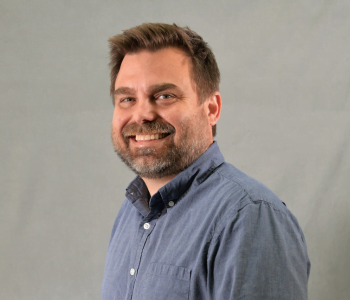
Education:
PhD., Auburn University
MA, University of West Florida
BS, Florida State University
Areas of Interest:
US History since 1865
Latin American History
Public History/Archival Studies
Cold War History
About: Dr. Hector Montford teaches US and Latin American history courses at the College of Coastal Georgia. His research interests include US and Latin American diplomacy in the twentieth Century, US foreign policy and American culture during the Cold War, and Public History. For his dissertation, “The Best of Friends and Neighbors: The USIA and American Public Diplomacy Strategy in Cuba, 1953-1962,” Dr. Montford examined the US government’s public diplomacy program in the years before, during, and just after the Cuban Revolution. As a Public Historian, Dr. Montford has worked, interned, and volunteered in a number of museums and archives. While with these organizations, his job duties included archival administration and public outreach, collections management, exhibit design, and archival processing.
Dr. Michael Morris
Dr. Morris is a Georgia native and a graduate of the Ph.D. program at Auburn University. His areas of specialty are Early America and Native American culture. His research focuses on Native American women and Scots-Irish fur traders in the colonial backcountry. He is the author of three books, one on the Southeastern Indian fur trade, another on Scots-Irish fur traders, and the third on George Galphin and the transformation of the Georgia-South Carolina backcountry. He is currently working on a manuscript about a Cherokee Rebellion during the American Revolution. He is a long time member of the Georgia Association of Historians and South Carolina Historical Association.
The American History survey, parts I & II and the World Civilization survey, parts I & 11. Upper level courses include American Social and Cultural History, Atlantic World History, American Indian to 1840 and the Early Republic.
Dr. Nicole Pankiewicz
Dr. James Pope
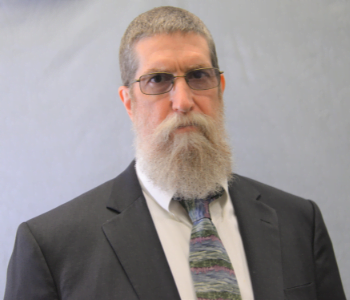
Dr. Pope received his Ph.D. in Biopsychology from the University of Georgia. Prior to that, he received his Masters in General-Experimental Psychology from the College of William and Mary, and his Bachelor’s degree in Psychology from DePauw University. Dr. Pope has been teaching at the college level since 1999. His graduate training is in Biopsychology, and his active research areas are musical cognition, measurement of personality traits, and measurement of socio-political attitudes. At the College of Coastal Georgia, he teaches Introduction to Psychology, Research Methods, Adjustment, Drugs & Behavior, and Personality. He plans to add Motivation and Cross-Cultural to the list next year. He is an active member of the Southeastern Psychological Association (SEPA) and has presented collaborative research with students at the SEPA convention every year since 2005. He enjoys few things in life more than teaching Psychology and working with students on research projects.
Dr. Aurora Ramos Nunez
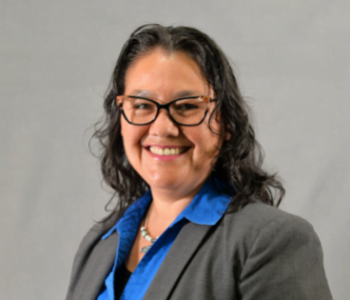
Education: PhD in Developmental Psychology, University of Houston
Course Information
PSYC 1101 – Introduction to General Psychology
PSYC 3000 – Research Methods & Stats
PSYC 3200 – Foundations of Brain and Behavior
PSYC 3320 – Industrial/Organizational Psychology
PSYC 4220 – Cognitive Psychology
Research Interests
Dr. Aurora Ramos Nuñez investigates cognitive processes such as language and bilingualism, memory, and cognitive control, defined as the ability to perform the task at hand while ignoring preponderant distractors, as well as the brain regions related to those processes.
Peer-Reviewed Articles
- Keehn, B., Brenner, L. A., Ramos, A. I., Lincoln, A. J., Marshall, S. P., & Müller, R. A. (2009) Eye movement patterns during an embedded figures test in children with ASD. Journal of Autism and Developmental Disorders, 39, 383-387.
- Archila-Suerte, P., Zevin, J., Ramos, A. I., & Hernandez, A. E. (2013). The neural basis of non-native speech perception in bilingual children. Neuroimage, 67, 51-63.
- Vaughn, K. A., Greene, M. R., Ramos-Nunez, A. I., & Hernandez, A. E. (2015). The importance of neuroscience in understanding bilingual cognitive control: A commentary on “Bilingual advantages in executive functioning either do not exist or are restricted to very specific and undetermined circumstances” by Paap et al. . Cortex.
- Vaughn, K. A., Ramos-Nuñez, A., Greene, M. Munson, B., Lee, M., Grigorenko, E., Hernandez, A. (2016). Individual differences in the bilingual brain: The role of language background and DRD2 genotype in verbal and non-verbal cognitive control. Journal of Neurolinguistics, 40, 112-127.
- Felton, A., Vazquez, D., Ramos-Nuñez, A. I., Greene, M. R., McDowell, A., Hernandez, A., & Chiarello, C. (2017). Bilingualism influences structural indices of interhemispheric organization. Journal of Neurolinguistics. 42, 1-11.
- Yue, Q., Martin, R., Fischer-Baum, S., Ramos-Nuñez, A. I., Ye, F., Deem, M. W., (2017) Brain modularity mediates the relation of cognitive performance to task complexity. Journal of Cognitive Neuroscience, 29(9), 1532-1546.
- Ramos-Nuñez, A. I., Yue, Q., Martin, R., Fischer-Baum, S., Ye, F., & Deem, M. W. (2017). Static and dynamic measures of human brain connectivity predict complementary aspects of human cognitive performance. Frontiers in Human Neuroscience, 11, 420-433.
- Fischer-Baum, S., Kook, J. H., Lee, Y., Ramos Nuñez, A. I., & Vannucci, M. (2018). Sight or sound? Individual differences in the neural and cognitive mechanisms of single word reading. Frontiers in Human Neuroscience, 12, 1-7.
Dr. Roscoe Scarborough
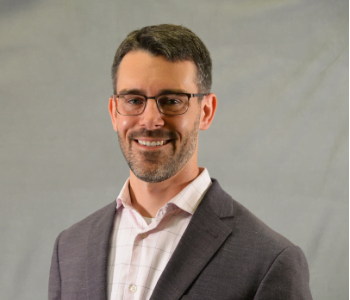
Associate Professor of Sociology
Education
Ph.D., Sociology. University of Virginia, 2015.
M.A., Sociology. University of Virginia, 2009.
B.S., cum laude, Sociology and Criminal Justice. Old Dominion University, 2007.
Recent Scholarship
Scarborough, Roscoe C. 2017. “Risk a Lot to Save a Lot: How Firefighters Decide Whose Life
Matters.” Sociological Forum 32(S1):1073-92.
Scarborough, Roscoe C. 2017. “Making It in a Cover Music Scene: Negotiating Artistic
Identities in a ‘Kmart Level Market.’ ” Sociological Inquiry 87(1):153-78.
Course Information
SOCI 1101 – Introduction to Sociology
SOCI 1160 – Introduction to Social Problems
Faculty Bio
Dr. Scarborough’s research and teaching focuses on culture and inequality. He has published on a broad range of topics, including how people consume “bad TV,” the status system of musicians, and belonging and inequality in the fire service. As an associate scholar of the Reg Murphy Center, he is a regular contributor to the From the Murphy Center column in The Brunswick News.
Dr. Christopher Wilhelm
Ph.D., American History, Florida State University, 2010.
M.A., History, Florida State University, 2005.
B.A., History, Florida International University, 2000.

